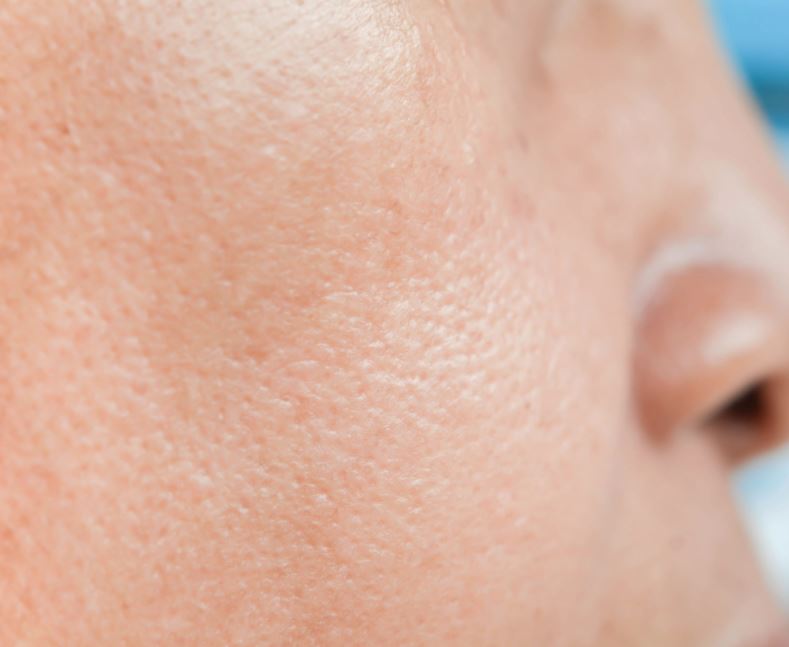Having healthy, radiant skin is a desire shared by many. However, achieving and maintaining optimal skin health requires understanding the intricate factors that contribute to its appearance. One such factor is skin oiliness. Skin oiliness refers to the level of sebum production, which is a natural oil produced by the sebaceous glands. While sebum plays a crucial role in skin health, excessive oiliness can lead to various concerns, including the formation of wrinkles.
Skin elasticity and its role in maintaining a youthful appearance.
Skin elasticity, on the other hand, is a fundamental aspect of youthful and vibrant-looking skin. It refers to the skin’s ability to stretch and snap back to its original position.

Many of our anti aging skin care treatments aim at restoring healthy levels of collagen and elastin, two proteins found in the skin, contribute to its elasticity. These proteins provide structural support, keeping the skin firm, supple, and resilient. As we age, the production of collagen and elastin decreases, leading to a gradual loss of skin elasticity.
There is a relationship between skin oiliness, elasticity, and the formation of wrinkles. Skin oiliness affects elasticity and, subsequently, how this interplay impacts the development of wrinkles. By understanding this connection, we can better appreciate the importance of balanced skincare routines and lifestyle choices that promote both healthy oil levels and optimal skin elasticity.
Our skin plays an important role in keeping us looking young and healthy. As we age, our skin begins to naturally lose its elasticity and firmness, which is why it’s essential to take care of our skin as early as possible.
While there are numerous ways to keep your skin youthful, one overlooked factor is oiliness. It turns out that the amount of oil on our face can have a significant impact on how well it ages over time.

Understanding Skin Oiliness
Skin oiliness and its causes, including sebum production.
Skin oiliness refers to the level of sebum production, which is a natural oil secreted by the sebaceous glands. Sebum plays a vital role in maintaining skin health as it helps lubricate and moisturize the skin. The amount of oil produced can vary among individuals and is influenced by factors such as genetics, hormonal fluctuations, and environmental conditions.
The role of sebum in maintaining skin hydration and protecting the skin barrier.
Sebum serves as a natural moisturizer for the skin, helping to keep it hydrated and supple. It forms a protective barrier that helps prevent excessive water loss, maintaining the skin’s moisture balance. Additionally, sebum contains antimicrobial properties, which help protect the skin against harmful bacteria and other pathogens.
Factors that can contribute to excessive oil production, such as hormonal imbalances and genetics.
Several factors can contribute to excessive oil production, leading to oily skin. Hormonal imbalances, especially during puberty or hormonal fluctuations in women, can trigger increased sebum production. Genetic predispositions can also play a role, as some individuals naturally have overactive sebaceous glands. Other factors, such as stress, diet, and certain medications, may influence oiliness as well.
Skin Elasticity: The Key to Youthful Skin
Skin elasticity is important in maintaining a firm, plump appearance.
Skin elasticity refers to the skin’s ability to stretch and bounce back to its original position. This quality is determined by the strength and flexibility of the skin’s underlying structures, such as collagen and elastin fibers. Supplementing with a high quality collagen dietary product can help maintain good elasticity. It is crucial for maintaining a youthful appearance as it contributes to a firm, plump look. When the skin has good elasticity, it appears smoother, more resilient, and less prone to wrinkles and sagging.
The role of collagen and elastin in maintaining skin elasticity.
Collagen and elastin are two essential proteins responsible for maintaining skin elasticity. Collagen provides structural support, helping to maintain the skin’s firmness and strength. Elastin, as the name suggests, provides elasticity, allowing the skin to stretch and retract. Together, these proteins contribute to a youthful, supple complexion.
Environmental factors, and lifestyle choices can affect skin elasticity.
As we age, the production of collagen and elastin naturally declines, leading to a decrease in skin elasticity. Environmental factors, such as sun exposure, pollution, and smoking, can also accelerate the breakdown of collagen and elastin fibers, compromising skin elasticity. Lifestyle choices, including poor nutrition, excessive alcohol consumption, and inadequate skincare, can further contribute to the loss of skin elasticity over time.
Aging and environmental factors have an effect the elasticity of our skin. As we grow older, our skin’s elasticity decreases due to a reduction in these fibers, leading to wrinkles, saggy skin, and fine lines. Exposure to sunlight and pollution can also play a role in diminishing skin elasticity. By caring for our skin, we can decelerate the aging process and maintain a youthful and glowing appearance.
Maintaining and Improving Skin Elasticity
It is feasible to preserve and even enhance skin elasticity by adopting a healthy lifestyle. This includes:
- Taking A Collagen Supplement
- Consuming a balanced diet
- Engaging in regular exercise
- Collagen inducing skin care treatments like Jet Plasma, Plasma Fibroblast, Microchanneling, and a BioRePeel Chemical Peel.
- Practicing proper skin care, such as using moisturizers and sunscreen
The Relationship Between Skin Oiliness and Elasticity
Excess oil production can impact skin elasticity.
Excessive oil production can have a notable impact on skin elasticity. When the skin is excessively oily, the excess sebum can mix with dead skin cells and environmental impurities, clogging the pores. This can lead to the formation of acne, inflammation, and other skin conditions that can compromise skin elasticity.
The effects of oily skin on collagen and elastin production.
Oily skin can disrupt the delicate balance of collagen and elastin production. The excess oil on the skin’s surface can create a barrier that hinders the absorption of essential nutrients needed for collagen synthesis. Additionally, the accumulation of oil and impurities can contribute to chronic inflammation, which negatively affects collagen and elastin fibers, leading to a reduction in skin elasticity over time.

Imbalanced sebum levels can lead to skin conditions that affect elasticity, such as acne and inflammation.
Imbalanced sebum levels can give rise to various skin conditions that impact skin elasticity. For instance, excessive sebum production can clog the pores, leading to the formation of acne. The presence of acne lesions and subsequent inflammation can damage collagen and elastin fibers, impairing skin elasticity. Furthermore, chronic inflammation resulting from imbalanced sebum levels can accelerate the breakdown of these vital proteins, contributing to premature aging and reduced skin elasticity.
The Impact of Oiliness and Elasticity on Wrinkles
The formation of wrinkles and how they are influenced by skin oiliness and elasticity.
Wrinkles are a natural part of the aging process and are influenced by various factors, including skin oiliness and elasticity. Over time, the combined effects of reduced collagen and elastin production, along with the breakdown of these proteins due to environmental factors and lifestyle choices, can lead to the formation of wrinkles. Skin oiliness and elasticity play significant roles in the development and severity of wrinkles.
How oily skin can contribute to the development of certain types of wrinkles, such as expression lines.
Oily skin can contribute to the development of certain types of wrinkles, particularly expression lines. Excessive oiliness can make the skin prone to clogging, resulting in more pronounced and deeper lines in areas where repeated facial movements occur, such as around the eyes (crow’s feet) or mouth (smile lines). The combination of oily skin and reduced elasticity can exacerbate the appearance of these expression lines, making them more noticeable.
The connection between reduced elasticity and the deepening of wrinkles.
Reduced skin elasticity can lead to the deepening of wrinkles. When the skin lacks elasticity, it becomes less capable of bouncing back after being stretched or compressed. This leads to the formation of deeper wrinkles, as the skin is unable to revert to its original position. Furthermore, as collagen and elastin fibers weaken over time, the skin becomes more susceptible to the effects of gravity, causing sagging and further deepening of wrinkles.
Other Factors Influencing Skin Elasticity
Sun Exposure
Prolonged exposure to the sun’s harmful UV rays can gradually damage skin elasticity. Overexposure can weaken the collagen and elastin fibers in the skin, leading to premature aging, sunspots, and a rough skin texture. Make sure to apply sunscreen every day, even on overcast days, and minimize your time spent under direct sunlight.
Smoking
Smoking can negatively impact skin elasticity, as cigarettes contain toxins that can harm collagen and elastin fibers. This damage can result in premature aging, wrinkles, and sagging skin. To maintain your skin’s elasticity, consider quitting smoking – an action that offers numerous additional health benefits.
Hormonal Changes
Hormone fluctuations, especially in estrogen levels, can influence skin elasticity. Women experiencing menopause may notice a decline in skin elasticity due to reduced estrogen production, which can cause dryness and a wrinkled appearance. Consult with your doctor about hormone replacement therapy to help preserve your skin’s elasticity during menopause.
Weight Fluctuations
Rapid weight gain or loss can also affect skin elasticity. When the skin stretches too quickly, collagen and elastin fibers may break down, resulting in stretch marks and sagging skin. To avoid drastic weight changes that can impact your skin’s elasticity, maintain a healthy weight through a well-balanced diet and regular exercise.
Maintaining a Balanced Approach
Tips and strategies for managing oily skin without compromising skin elasticity.
Managing oily skin while preserving skin elasticity requires a balanced approach. Here are some tips and strategies to help achieve this:
Gentle Cleansing: Use a mild, non-comedogenic cleanser to remove excess oil and impurities without stripping the skin of its natural moisture. Avoid harsh or abrasive cleansers that can disrupt the skin’s barrier.
Regular Exfoliation: Incorporate gentle exfoliation into your skincare routine to unclog pores and remove dead skin cells. Opt for chemical exfoliants containing ingredients like salicylic acid or glycolic acid, which help regulate oil production without causing irritation.
Hydration is Key: Hydrating the skin is crucial, even for oily skin types. Use lightweight, oil-free moisturizers to maintain proper hydration levels. Skipping moisturizer can actually trigger the skin to produce more oil, exacerbating oiliness.
Skincare routines and ingredients that can help regulate oil production and improve skin elasticity.
To regulate oil production and improve skin elasticity, consider the following skincare routine and ingredients:
Oil-Control Products: Look for skincare products specifically formulated for oily skin, such as oil-free moisturizers, serums, and lightweight sunscreens. These can help balance sebum production without clogging the pores.
Retinoids: Incorporating retinoids into your routine can have multiple benefits. They regulate oil production, stimulate collagen production, and improve skin elasticity. Start with a low concentration and gradually increase usage to avoid skin irritation.
Antioxidants: Antioxidant-rich ingredients like vitamin C and green tea extract help protect the skin from environmental damage and support collagen synthesis, promoting skin elasticity. Look for serums or creams containing these potent ingredients.
Take a holistic approach to skincare, including a healthy lifestyle, diet, and stress management.
Maintaining healthy skin goes beyond skincare products. Encourage a holistic approach to skincare by:
Following a Balanced Diet: Consume a diet rich in fruits, vegetables, lean proteins, and healthy fats to support skin health. Avoid excessive consumption of processed foods and sugars, as they can contribute to skin inflammation and oiliness.
Staying Hydrated: Drink plenty of water to keep the skin hydrated and flush out toxins. Proper hydration supports overall skin health and elasticity.
Managing Stress: Chronic stress can worsen skin conditions and affect oil production. Incorporate stress management techniques like meditation, exercise, and sufficient sleep to promote overall well-being and healthier skin.
Final Thoughts About Skin Oiliness, Elasticity, and Wrinkles
At Ageless Aesthetics, we recognize the close relationship between skin oiliness and elasticity, as they play a significant role in the formation of wrinkles. When excess oil production occurs, it can impact skin elasticity, contributing to various skin conditions that may accelerate the development of wrinkles. On the other hand, reduced skin elasticity can deepen existing wrinkles, affecting the overall appearance of the skin.
Understanding the crucial link between skin oiliness, elasticity, and wrinkles empowers us to make well-informed choices about our skincare routines and lifestyle habits. At Ageless Aesthetics, we advocate for a balanced approach that allows us to effectively manage oily skin without compromising its natural elasticity. By following our expert advice and incorporating the right skincare products, we aim to promote healthier and more resilient skin, ultimately leading to a youthful and radiant complexion.
At Ageless Aesthetics, we are proud to offer a range of non-surgical anti-aging solutions designed to address specific skin concerns, including oily skin. Our team of experienced professionals will work with you to create a personalized skincare regimen that targets excess oil production while preserving skin elasticity, leading to the desired outcome: “oily skin, no wrinkles.” With our cutting-edge treatments and comprehensive skincare plans, we are committed to helping you achieve the skin of your dreams.
To promote healthier skin cells and combat the natural aging process, it’s essential to follow a healthy diet, exercise regularly, and consider professional skin treatments such as Plasma Fibroblast, Jet Plasma, BioRePeel Chemical Peel, and Microchanneling.
Although some of these treatments may cause temporary redness or irritation, they have been proven effective in reducing fine lines, wrinkles, and uneven skin tone while restoring skin elasticity.
For personalized advice and tailored skincare solutions, it is always recommended to consult with a skincare expert like Ageless Aesthetics with HB Walsh. We can assess your unique skin concerns, provide targeted recommendations, and guide you towards the most effective treatments and products for maintaining optimal skin health.


